Are you passionate about pursuing a higher education but facing unexpected financial hurdles? You're not alone, and there's hope! Crafting a compelling appeal letter for a scholarship can make the difference in securing the support you need. Join us as we explore effective strategies and tips for writing a persuasive scholarship appeal that can help you continue on your educational journeyâread on to find out more!

Applicant's Personal Information
A higher education scholarship appeal often requires detailed personal information from the applicant to present a compelling case. The applicant's name, age, and contact information are fundamental elements, while the student's academic background includes the current institution, degree program, and GPA (Grade Point Average) for clarity on eligibility. Additionally, providing information regarding extracurricular activities, volunteer work, and leadership roles gives context to the applicant's commitment to personal and academic growth. It is also important to include any financial hardship details, such as changes in family income or unexpected expenses that necessitate this appeal. Finally, the applicant should mention any relevant awards or recognitions that illustrate their achievements and potential for success in their educational pursuits.
Clear Statement of Appeal Purpose
Scholarship appeals often arise from unforeseen circumstances impacting academic performance or financial situation. A clear statement outlining the appeal's purpose should focus on specific events such as family emergencies, unexpected medical expenses, or significant changes in financial support. These details not only clarify the context but also emphasize how they influenced educational achievements. The statement should address the specific scholarship program, acknowledging its importance in achieving educational goals at the chosen institution, like a reputable university known for its commitment to student success. Including relevant dates, figures, and specific programs can strengthen the appeal by demonstrating the necessity of continued financial support in overcoming challenges.
Detailed Explanation of Circumstances
Many students face unexpected financial hardships while pursuing higher education goals. Personal circumstances such as medical emergencies, sudden job loss, or family crises significantly impact one's ability to meet tuition fees. For instance, a parent may lose employment in a recession, reducing household income and necessitating an appeal for financial assistance. Furthermore, unanticipated medical bills from a serious health condition can divert funds that would otherwise support educational expenses. Data reveals that students from disadvantaged economic backgrounds often struggle with these challenges, resulting in decreased enrollment or dropout rates. Addressing these factors with transparency is essential in scholarship committees, as they consider the applicant's overall potential amid adverse life circumstances. Crafting a compelling appeal emphasizes resilience and commitment to educational objectives despite financial setbacks.
Supporting Documents or Evidence
Supporting documents play a crucial role in scholarship appeals, providing necessary evidence and context. A personal statement detailing financial hardship can be supplemented by income statements or tax returns from the previous year, illustrating economic challenges. Transcripts from the current academic institution can demonstrate commitment and performance, highlighting achievements such as a GPA of 3.5 or higher. Recommendation letters from professors or advisors can add credibility, showcasing academic potential and character. Additionally, documentation of any extenuating circumstances, such as medical records or unexpected family events, may help clarify the situation. Collectively, these elements reinforce the appeal, enabling a clearer understanding of the applicant's circumstances.
Positive and Respectful Tone
Scholarship appeals often require a thoughtful and compelling narrative. A well-structured appeal can highlight the applicant's achievements, challenges, and motivation, creating a strong case for reconsideration. For example, a student may present their academic performance (GPA 3.7), participation in community service (over 200 volunteer hours), and overcoming personal challenges (such as a family illness) where resilience and determination played a critical role. They might express gratitude for the initial scholarship award and outline specific plans for leveraging education to contribute positively to society. Emphasizing respect for the committee's decision-making process fosters a positive tone, while sincerity in addressing the financial burden motivates reconsideration. This approach can create a compelling narrative that enhances the potential for scholarship appeals to succeed.
Letter Template For Higher Education Scholarship Appeal Samples
Letter template of scholarship funding request for professional development.
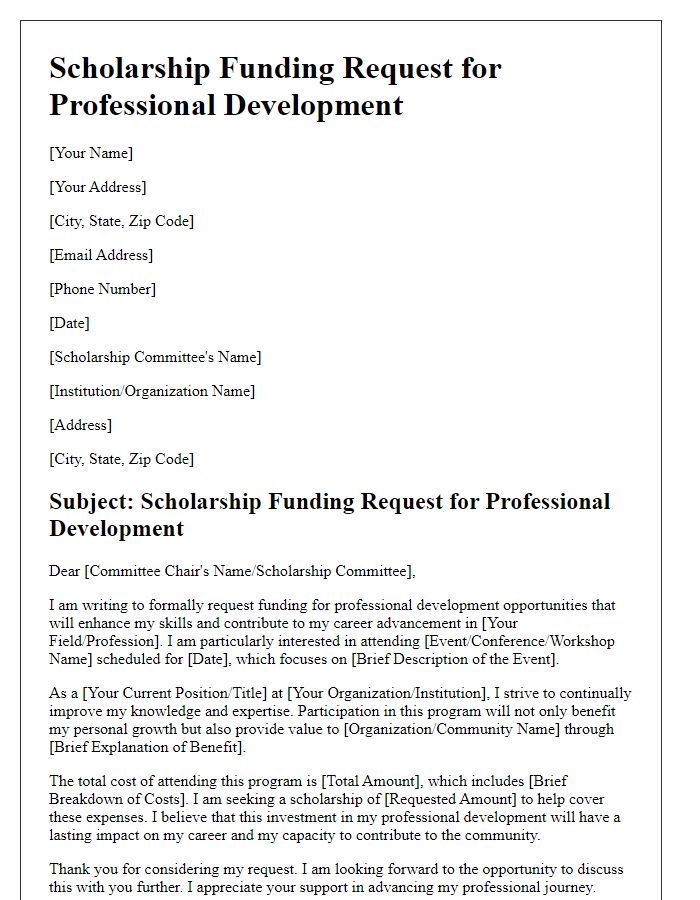

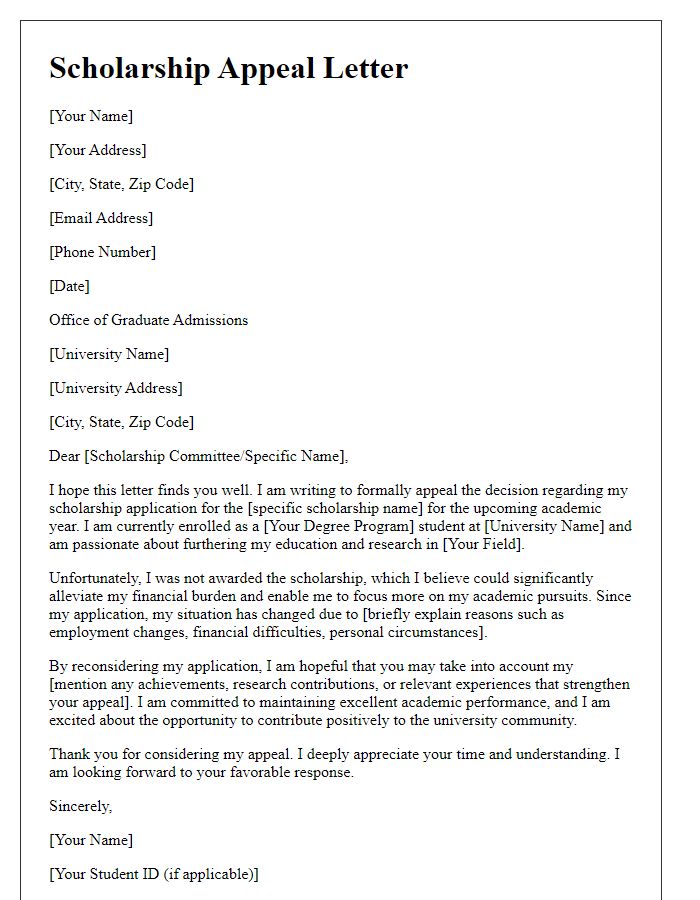
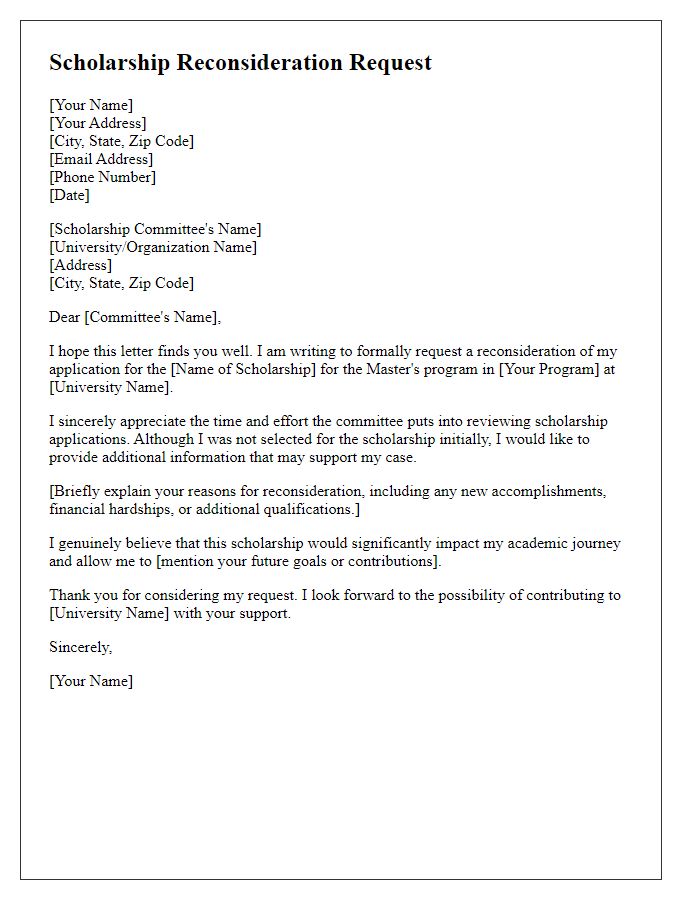
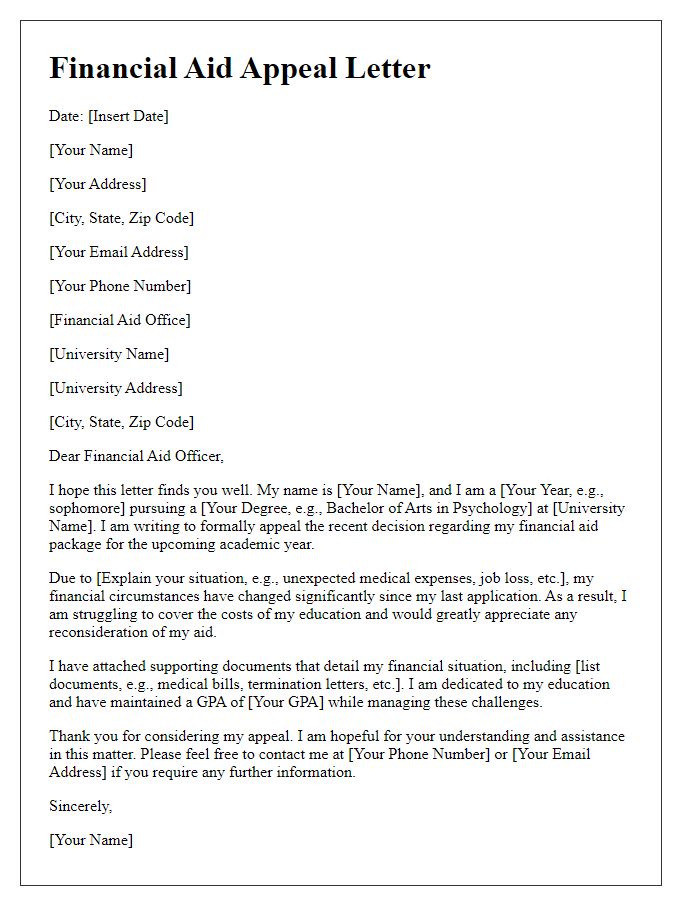
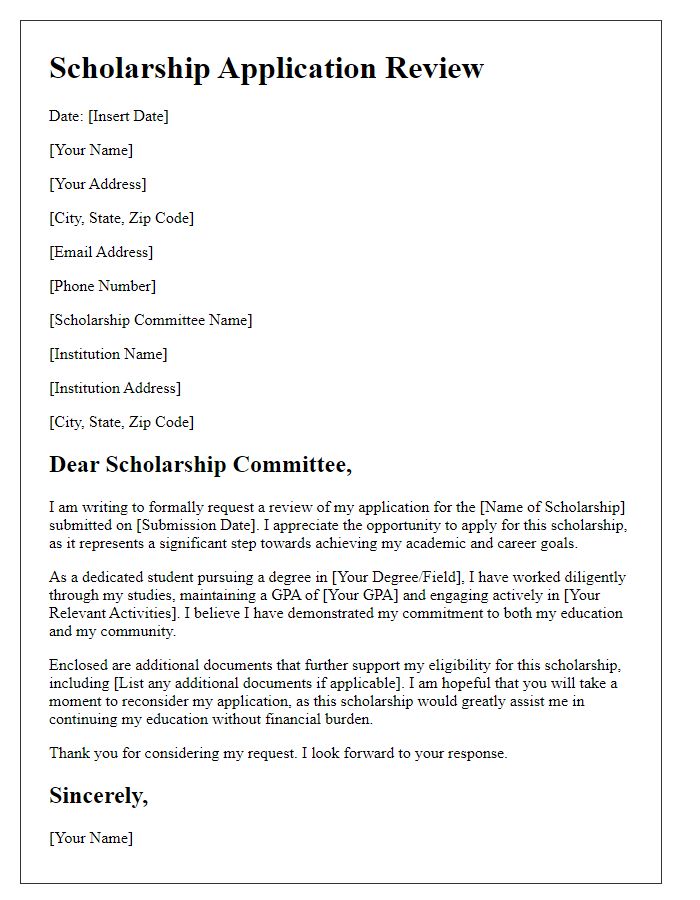
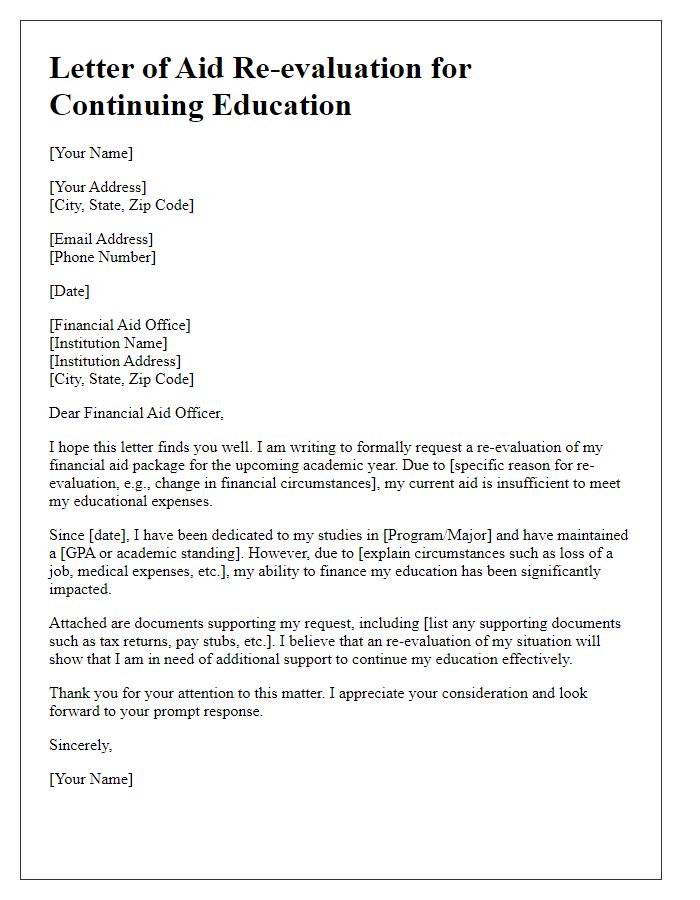
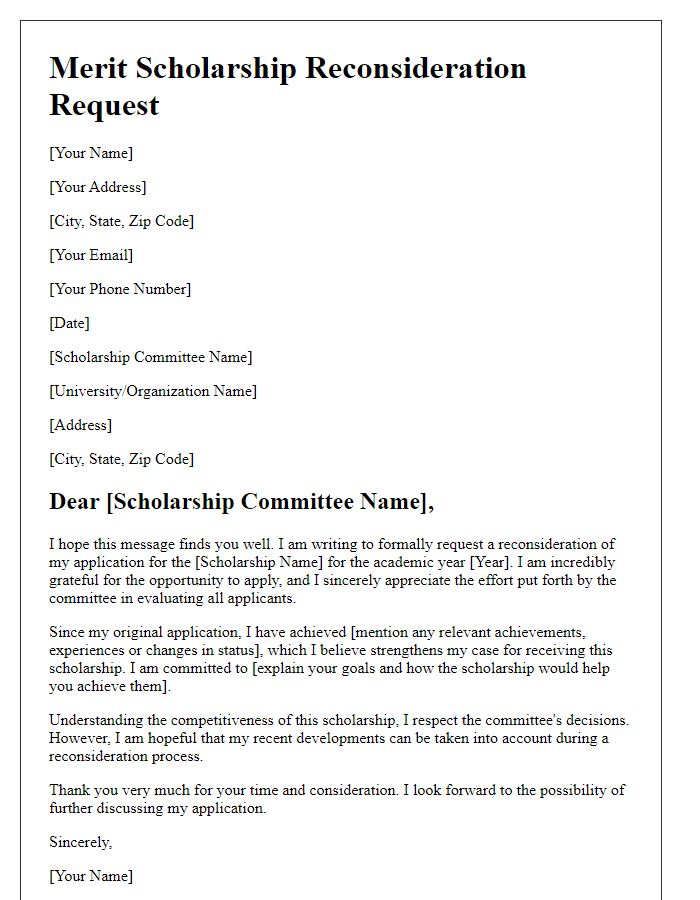
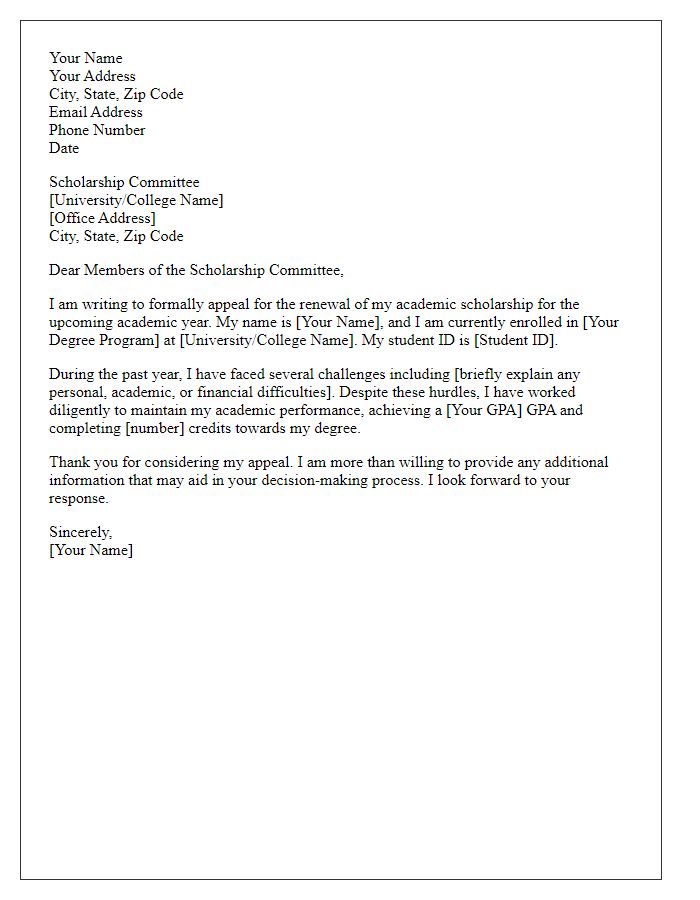
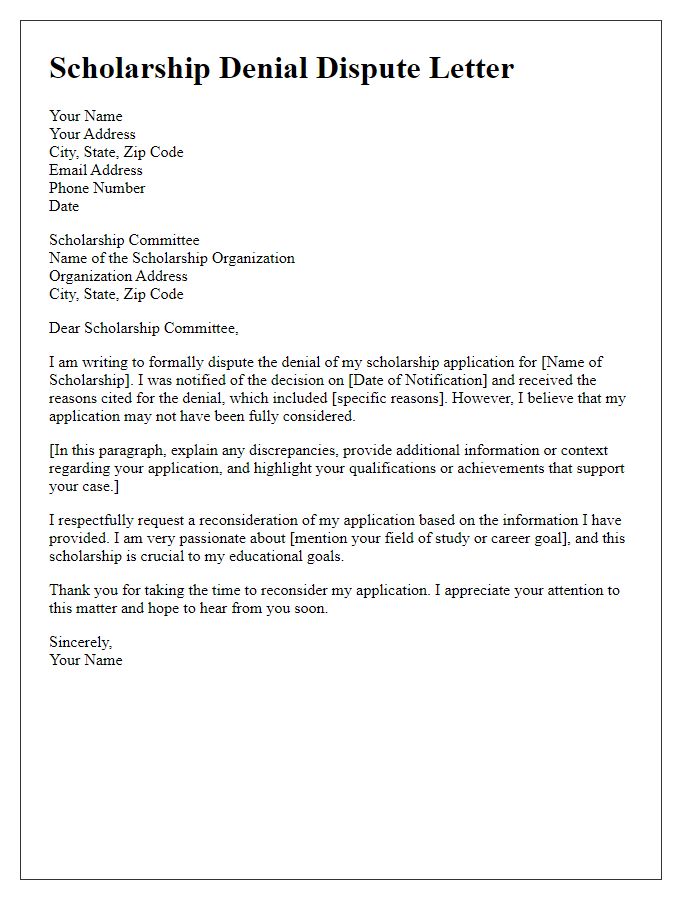
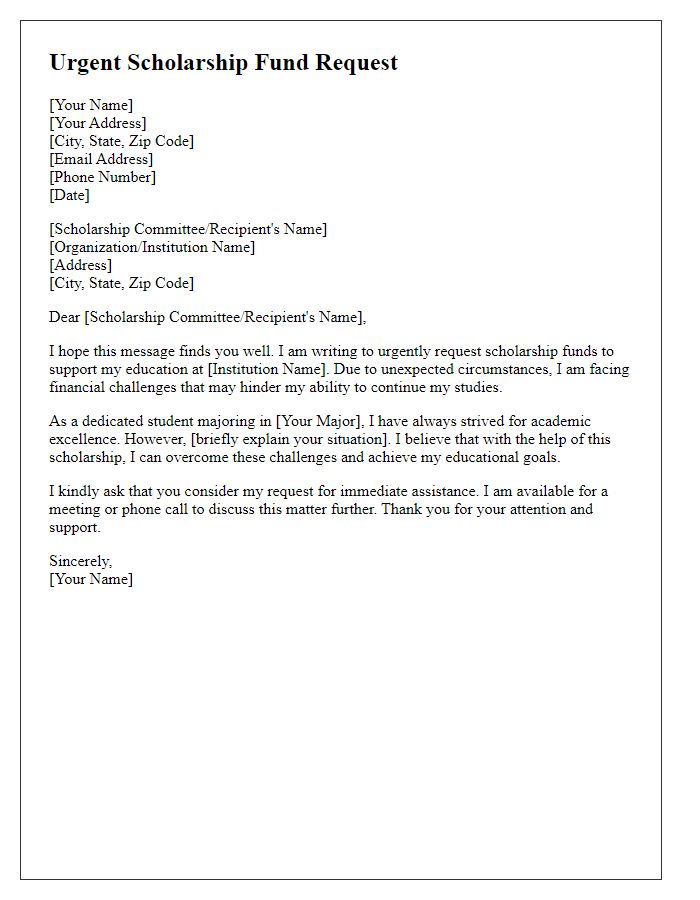


Comments